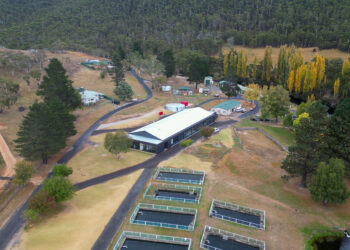
ALLOWING fish to freely migrate is a significant global issue, since fish need to move within their environment to feed, breed and access habitats.
The many changes to aquatic environments, including the construction of dams, weirs, hydropower, and culverts have reduced the connectivity of river-floodplain systems through physical barriers and reduced flood flows. These changes have significantly impacted many fish species across the world. Much is happening, however, to improve fish passage, including modifying and removing existing structures, establishing fishways, and managing environmental water flows.
It’s exciting that this December, Albury is hosting the 2018 International Conference on River Connectivity (Fish Passage 2018), which also incorporates the First International Symposium on Hydropower and Fish Management. This conference will bring together Northern and Southern Hemisphere fish passage researchers, practitioners, and fishers to exchange findings and experiences on fish passage issues.
The three-day conference (Dec 11 to 13) is relevant to researchers, educators, practitioners, funders, and regulators…anyone with with an interest in advancements in riverine connectivity. There will be concurrent sessions on engineering, biology, management and monitoring techniques. The conference also includes a range of keynote speakers, networking opportunities, a poster session, as well as independently offered short courses, workshops, and tours immediately before and after the conference. Some of key conference themes include:
- Going with the flow – triggering fish passage with managed flow
- Life history movement patterns and fishway design
- Cost-effective fish passage innovation
- How to design a successful fish passage project
- Updating fish passage monitoring
- Reconnecting with floodplains and wetlands
- Individuals to populations – quantifying connectivity
- Cold Water Pollution mitigation – cold hard facts
- Best practice diversion screening
- Ecological implications of barriers on aquatic biota
If you’re interested, click HERE.
















